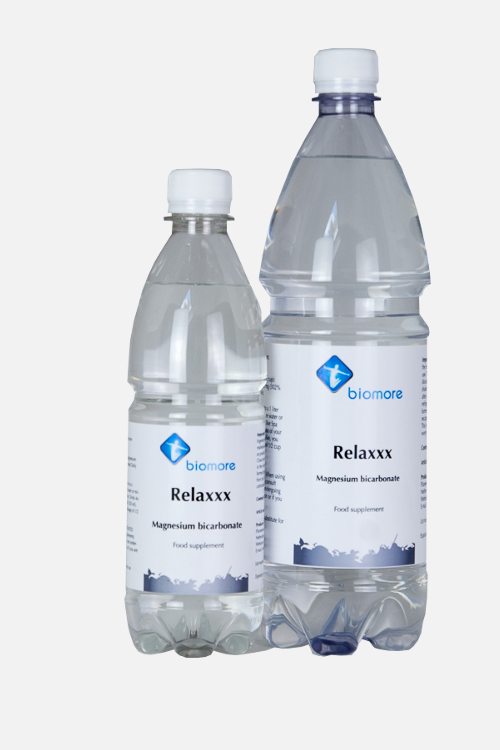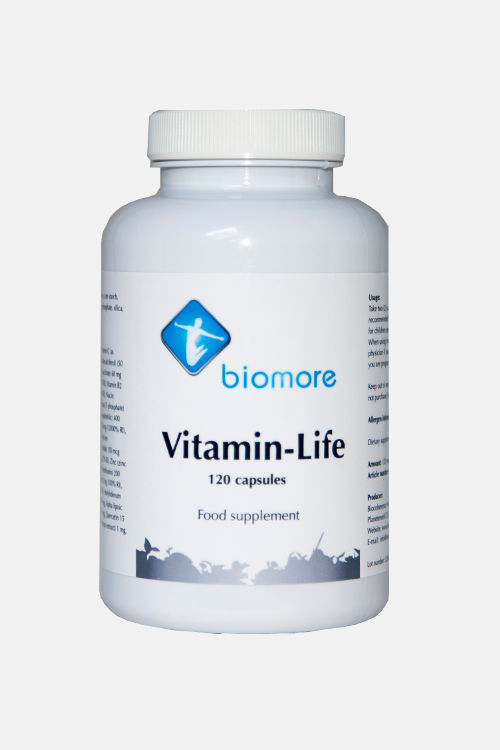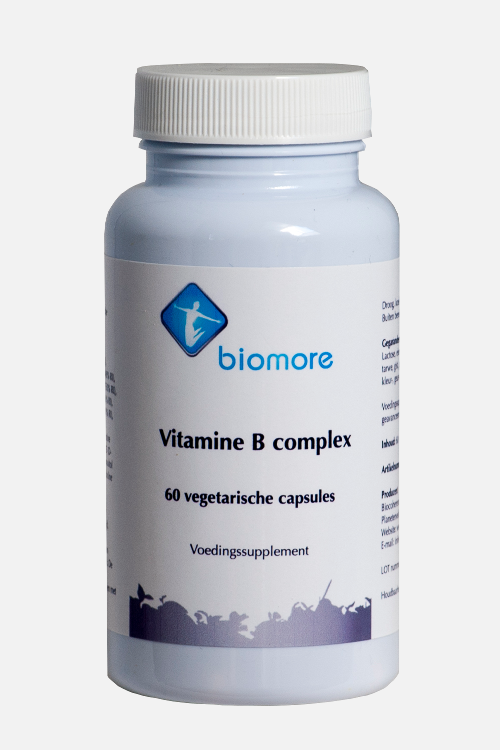The importance of sufficient stomach acid
An adequate amount of HCl (hydrochloric acid or stomach acid) is very important for proper digestion and good immune health. Without enough HCl, food is insufficiently digested. The body then does not absorb enough minerals and vitamins. When we start eating, the stomach is stimulated to produce HCl. This HCl activates certain cells in the stomach that secrete a protein-splitting enzyme (Pepsinogen). This enzyme also needs HCl to be active and hydrolyze proteins. The main role of HCl is to activate this enzyme, which allows the enzyme to break down proteins. The enzyme is then called Pepsin. The amount of stomach acid increases during the meal. When there is enough stomach acid (about 20-30 minutes after the meal) it neutralizes enzymes from the mouth, it helps to kill bacteria, parasites and viruses that come in with the food, carbohydrates and proteins are broken down. In many cases, insufficient stomach acid is produced.
CAUSED BY VARIOUS STRESS FACTORS
Causes of insufficient stomach acid
- Eating when upset. Hydrochloric acid secretion may be completely inhibited by stress, emotion, or worry. It is the low-grade, long-term, emotionally oriented life stress that is more the culprit here. NOTE: Intense stress caused by high stress situations or desire for high achievement is associated more with HCL over (hyper) secretion and peptic ulcer disease (at least initially). As the stress continues, the body is exhausted and HCL production is no longer adequate.
- Eating a nutrient deficient diet of processed and fast foods
- Lack of sufficient minerals in the daily diet
- Excess carbohydrate consumption and poor food combining
- Zinc deficiency
- B vitamin deficiency especially thiamine deficiency
- Refined sugar. Refined sugar depletes minerals. Replace mineral-depleting refined sugar and sweeteners with maple syrup, honey, or stevia.
- Chronic illness
- Drinking ice water with meals
- Age. As you get older, stomach acid production tends to decrease especially if there is any chronic illness.
- Anti-acid use
- Taking prescription and over the counter drugs that suppress HCL production either directly or indirectly.
- Candida
DINING HABITS AND FOOD CHOICES CAN RESOLVE MANY PROBLEMS
Making enough stomach acid
- Make sure that when you eat you are relaxed and at peace. Avoid eating when upset as emotional upset can stop the production of HCL.
- Eat unpasteurized unheated salt-free sauerkraut. Sauerkraut helps to raise stomach acid “if” it is too low, and it lowers stomach acid “if” it is too high. Eating 1/4 to 1/2 cup of sauerkraut with meals is very helpful to the digestive system.
- Eat wholesome real foods.
- Use good quality sea salt- stimulates stomach acid production.
- Zinc is critical for the production of HCL. Increase zinc intake through whole foods. Pumpkin seeds are the most concentrated non-meat food source of zinc. Most foods that are high in zinc are animal foods such as beef, lamb, crabmeat, turkey, chicken, lobster, clams and salmon. Zinc food sources aside from meats are dairy products such as yogurt, kefir. and cheese, yeast, peanuts, beans, wholegrain cereals, brown rice, whole wheat bread, and potatoes. Vitamin C, E, B6, and minerals such as magnesium can increase zinc absorption in the body. So adding wholefood supplements will help assimilation.
- Take a wholefood superfood multi vitamins to help restore the vitamins and minerals that are needed for HCL production – especially B vitamins – niacin, thiamine, pyridoxal-5-phosphate (the active form of vitamin B6).
- Eliminate processed foods, genetically modified foods, fast foods, additives, dyes, artificial flavorings, etc. that are devoid of nutrition.
- Eliminate white flour, refined sugars, and artificial sweeteners.
- Use food combining to take pressure off digestive system. Do not eat proteins and carbohydrates/starches together. Carbohydrates reduce the production of HCL – protein requires HCL to be digested. Eat proteins with low starchy vegetables. Eat starches/carbohydrates with vegetables. Eat fruit alone – not with meals.
- Avoid overeating.
- Chew foods thoroughly to stimulate digestive enzymes in the mouth, and to break up foods into the smallest particles possible for better digestion.
- Try to eat three to four hours before bedtime. If you eat too late the body struggles to complete the digestive process during the time it is naturally trying to rest.
- Don’t lie down immediately after eating. If you must lie down, prop yourself up with pillows so that head and upper torso are raised to aid the digestion.
- Do not drink ice water with meals as it inhibits production of stomach acid.
- Drink ginger tea to increase production of HCL.
- Drink 4 ounces freshly juiced cabbage juice.
- To aid the body in digesting animal protein soak meats in acidic mediums such as lemon or lime juice, tomato juice, apple cider vinegar, etc. Marinating meats is a good way to pre-digest or pre-cook them.
- Always eat good fats when you eat proteins. Protein stimulates stomach acid production, and protein and fats stimulate the gall bladder to dump bile into the small intestines. Good fats also are needed by the liver in order to produce bile.
- Use spices in cooking to stimulate stomach acid production and appetite.
- Avoid snacking in between meals in order to allow time for your body to digest foods properly.
- Take live-source hydrochloric acid supplement. We want to restore the body’s ability to produce its own HCL, but until this occurs take Betaine HCL.
Order the Heartburn test
The gastric acid test can be ordered by therapists who, when registered with us, can order this analysis via our webshop.
The gastric acid test can be ordered by consumers who are actively concerned with their health and vitality and are not being treated by a therapist. Depending on the results of the analyses, we will advise you after an explanation to seek guidance from the health professionals who are affiliated with us.
-
 Relaxxx Magnesium bicarbonate (35 g/l)€ 21,50 – € 37,26 excl. VAT
Relaxxx Magnesium bicarbonate (35 g/l)€ 21,50 – € 37,26 excl. VAT
-
 Vitamin Life€ 34,40 excl. VAT
Vitamin Life€ 34,40 excl. VAT
-
 Vitamin B-Complex€ 21,60 – € 41,00 excl. VAT
Vitamin B-Complex€ 21,60 – € 41,00 excl. VAT
